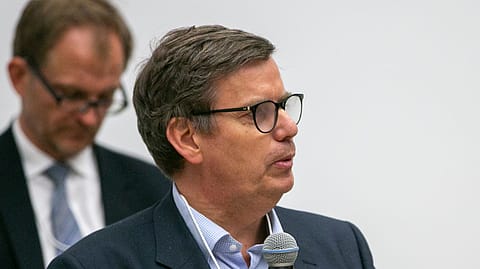India has the potential to become a hub for e-mobility: WEF
The automotive industry is currently undergoing three big transitions—shared, electric, and autonomous, says Christoph Wolff, head of mobility at the World Economic Forum.

The auto industry in India is going through one of the worst churns the country has ever seen. The India chapter of the World Economic Forum (WEF) on Thursday deliberated on various facets of the economy. In an interview with Fortune India, Christoph Wolff, head of mobility, WEF, talked about key automotive trends, the outlook for the sector in India, and the role of electric and shared mobility in the fourth industrial revolution. Edited excerpts:
The auto industry in India is witnessing declining sales. What are the catalysts that can help it bounce back?
The Indian economy remains with a strong outlook despite an emerging global slowdown due to geopolitical events. The government’s tax measures may increase consumer demand and confidence and lead to a rebound. We see electrification as a strong driver in the future, particularly with respect to those commercial vehicle segments that are heavily used operationally (fleets, distribution vehicles, three-wheelers, taxis, etc.). Private cars are less affected at a larger scale, and therefore we do not see a link between electrification and the recent dip in sales.
Are people not buying vehicles because some of the new launches haven’t been exciting enough? What are some of the key trends in the auto industry globally?
Consumer confidence may have dipped for geopolitical reasons and we see slumps in sales in automotive across multiple geographies. Key trends are digitisation; integration between modes including public transport and micro-mobility; and mobility as a service. Original equipment manufacturers (OEMs) globally are rethinking the functionalities in the car including connected and partly autonomous services. Cities are requesting smarter and cleaner cars and advocating for an increase in shared service models, including last-mile connectivity with public transit to get people out of single-occupancy private cars that contribute to congestion. Fleet ownership will increase correspondingly and a shift to professional owners that manage utilisation and life cycle much more economically.
How do you look at electrification? Is that the next big disruption the industry needs to look out for?
Electrification for passenger cars will come and battery technology is becoming cost-competitive for the mainstream segments in the mid-2020s. It has become competitive for fleet owners already and we see frontrunners like Lithium or Ola Cabs integrating EVs into their fleets. Three-wheelers are an important segment that can be electrified fast and obviously buses, in particular, intercity buses. The Indian government has, within FAME II, set important framework conditions, which are being adopted step by step by states across the country. Like all new disruptive technologies, the introduction needs policy support to make infrastructure investable and we are seeing progress happening on the ground. It will have an impact on the full value chain, as the fuel base is different [which is ] causing a reduction in oil dependency. The fact that the industry has moved to a cleaner fuel standard may cause a slower ramp-up of electric models in the mainstream but we remain bullish on electrical mobility overall. Significant investments in battery capacity may strengthen the trend.
Recommended Stories
What are some of the global challenges the industry is facing now? And how prepared are we for it?
The automotive industry is undergoing three big transitions at the same time: shared, electric, and autonomous mobility. While autonomous in India will not be relevant for the foreseeable future, the transitions to shared and electric can cater to India’s capability to adapt to new business models around shared assets with digital access, being versatile, and with a huge population of digital young consumers happy to engage. The fact there are fewer legacy assets may help the transition and electric cars are much simpler to build and to maintain. India has the potential to become a hub for electrical mobility over the next decade.
How do you define the fourth industrial revolution? How much of an impact is it going to have in our day-to-day lives?
The revolution describes the advent of different technologies from big data, artificial intelligence (AI), high-performing materials, internet of things, etc. that collectively have the chance to change all our lives within the next 10-20 years significantly and have started to do so. At some stage, autonomous cars that rely on sensor-based technology to autonomously steer cars through traffic may prevent road accidents in a big way and on the pathway to that, AI and deep learning will help train the embedded algorithms to learn how to deal with real-life situations until they are ready to go live. That may take 5-10 years or beyond on a big scale.
(INR CR)